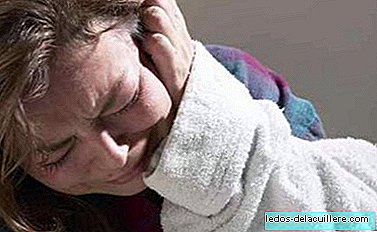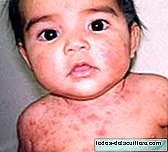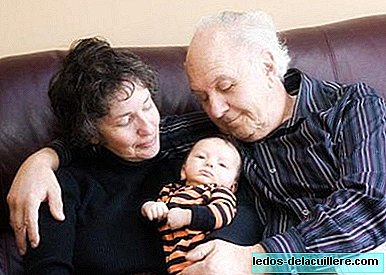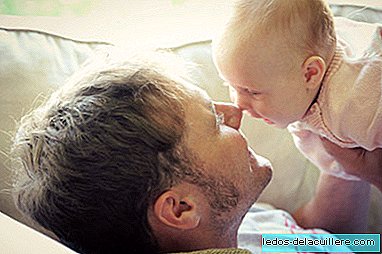
We have talked deeply about the emotional consequences of a natural abortion, which, in some cases, can lead to depression and need post-abortion psychological professional help. To know this process better we have interviewed the psychologist and doula Paz Ferrer Ispizua, specialized in processes of change, grief and loss.
What kind of professional should a woman go to feel she does not control her grieving process and when should she do it?
An abortion is a very hard situation and is often not well understood and minimized. Death is a taboo in general, and more than one being not yet born. In this sense, the most useful thing for a mother and, specifically for a family, who have lost a baby would be to be able to recognize, elaborate and integrate the loss, and for this, professional intervention may be necessary, given our socio-cultural context. This does not mean that an event of this type cannot be elaborated without specialized help, nor that it is a “disease”, but that our social constructions make it very difficult.
From my point of view, we may need “professional help” whenever we feel that we do not have the resources to face events that are part of the natural future of life: a separation, a death, an abortion, a change of any kind, because, although today it seems to us that this is not the case, we all have resources to face and overcome these events, and grow with them.
The therapeutic work consists in accompanying this discovery process and collaborating in it, so that the person learns that he has his own resources, recognizes them and uses them.
This process can also be accompanied by a “non-professional” person, but resorting to someone who has been trained and who has developed their own process usually provides better support and greater resources. In this sense, the ideal would be to resort not only to a professional, but to a person who has interest, love and training to accompany this type of process.
What are the warning signs?
After any loss, despair, crying, anger, guilt, even coldness are normal, and it usually goes from one state to another over time, even on the same day.
The duel is an open wound and, like the skin wounds, it has a healing process. If all goes well, if the wound is clean, if there are no “disturbing” elements, the most extreme signs last about 6 months. In general, around 2 years the wound has healed, although the "emotional scar" is still there. The warning signs that can lead us to think that this natural grieving process can be complicated are usually the extremes: coldness, denial, following as if nothing happened, comments of the type "they were only cells", on the one hand; Extreme and constant nightmares, crying, anger or guilt, maintained beyond 6 months, physical symptoms such as pain, digestive disorders and skin disorders. In general, both who is "too good" and who is "too bad" for a long time, because at first it is normal and you have to let it go, you have the possibility of developing a complication of grief. However, you have to be careful with this, because each person also faces their life in a different way, so it is important to be careful, cautious and caring.
What can the couple and the environment do to help a woman seek help if she rejects it?
When an abortion occurs both members of the couple, if it was a baby conceived in a relationship, usually accuse the consequences in a different way, and both need support and understanding. As for the environment, facilitate the expression of feelings, without forcing them (nothing like “how are you doing, how are you doing with the baby, tell me it is not going to be complicated for you…”), be there without pressing and not minimizing. It is common that people who have suffered a loss, especially a pregnancy, do not express what they feel because they think that in their environment they do not understand them or think that their pain is “ridiculous”, that they may have more children. However, if a person really rejects support and help, the only thing that can be done is to wait and be there to sustain it when it reaches the limit, since trying to “help” it without wishing it can make it feel childish and, even attacked. In summary, the environment should be attentive but calm, affectionate and understanding, but respecting the personal process. Sometimes it is positive, also, that people in the environment who have been through the same tell how they felt, or leave within their reach some information about it without necessarily explaining "read this, that it will come in handy."
And on the contrary, how can a woman make her environment understand that her pain has overcome her?
In addition to the signals that, by itself, a woman can send, it helps a lot for others that a woman express her reality in words. This does not necessarily mean that everyone understands it, but the important thing is not that others understand it, but that the woman release it. Making reality explicit with phrases like "losing my baby surpasses me, please don't tell me anything, just hug me" is liberating both for those who say it and for those who hear it. For the woman, because she can really get the support she needs and how she needs it the way she wants it; for the environment, because they don't have to feel anxious about how to react. Coming to this is complicated, but it should be remembered that people around a mourner often do or say things with the intention of improving their condition, so that they stop suffering, and are usually counterproductive.In this case, the main thing is the well-being of those who are suffering, so expressing that one needs to be alone, or go shopping, or be hugged, or cry is an important step to know and recognize the process itself, and helps environment to understand it.
Can we talk about depression in all cases that need help?
We can talk about sadness, despair or even "depressive state" when facing a loss. This is normal, because you have to pass that valley of sadness to say goodbye, to integrate, to move on. Many people need help at that time, but because they do not know that this is natural, and most of the time they just need to understand that it is part of the healing process. Depression is a diagnostic category that, in my experience, is common in complicated duels. However, most people who receive good support in their grieving process are neither depressed nor will they be.
Feeling sad, desperate, disillusioned, guilty or without strength, as I said, is normal at certain times, and is healing and healing. Depression can come when this process has not been allowed to flow properly..
I think this topic, although in this interview Paz Ferrer, psychologist and doula specialized in grief, has given us some clues, it deserves that we continue to deepen the post abortion psychological therapy and we will do it in the second part of this interview and in other subjects in which we will know the best way to face this difficult vital circumstance.



)








